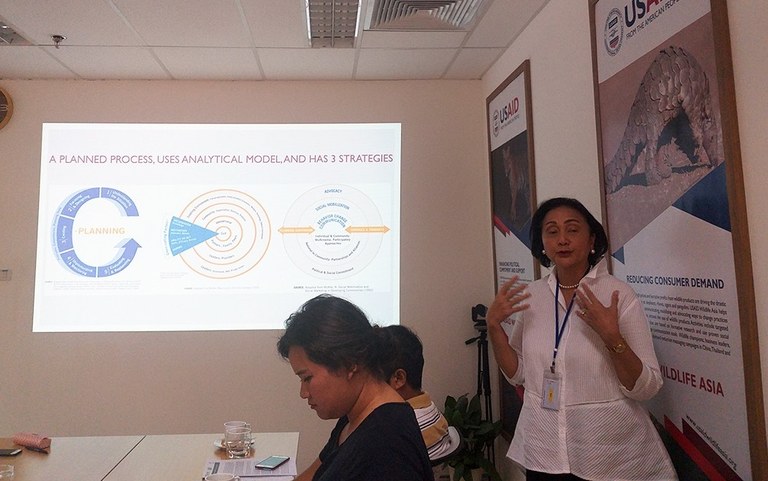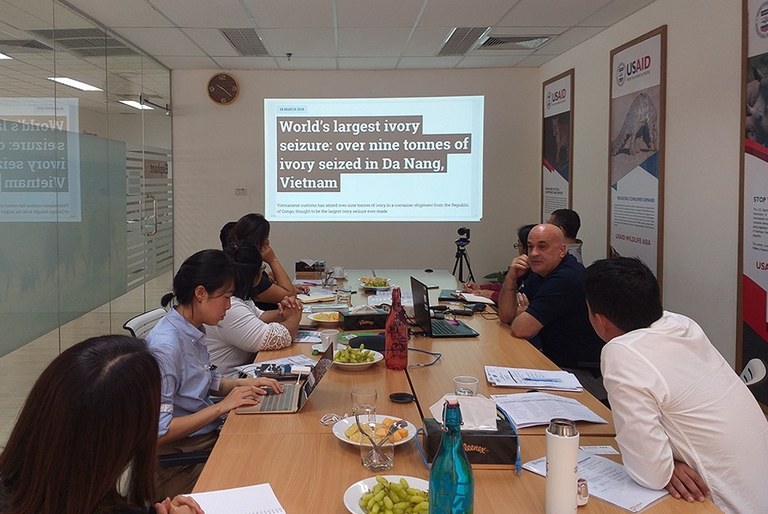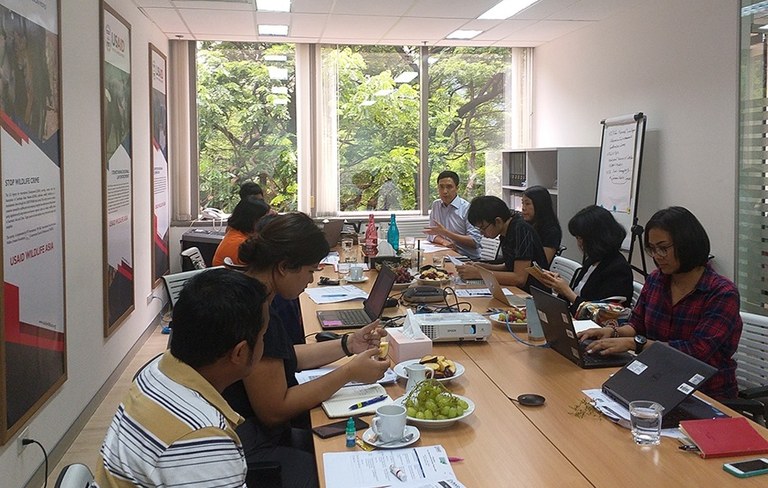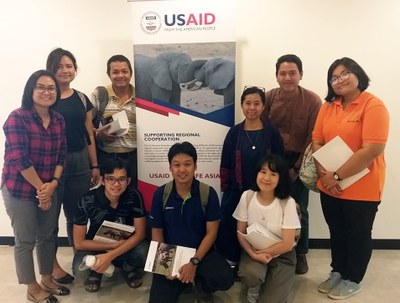Asia-Africa Journalists Exchange Launched
This activity, jointly organized under the USAID Wildlife Asia project and the USAID Promoting Tanzania’s Environment, Conservation and Tourism (PROTECT) project, provides an opportunity for environmental journalists from Thailand and Tanzania to increase the quality and quantity of their media reports on wildlife trafficking and boost general awareness among the media about the importance of covering the issue. It will also help build relationships between media houses in Thailand and Tanzania as the participating journalists form a cohort, which will in turn contribute to developing a network of environmental journalists working together to report more regularly and consistently on wildlife trafficking.
Selected Thai journalists to participate in the exchange include Chittiwat Pornprasert (Sarakadee), Jiraporn Sricham and Napong Srisod (Thai Public Broadcasting Service), Pratch Rujivanarom (The Nation), and Siripannee Supratya (The Matter). Prior to the trip, the participating journalists attended two information sessions on May 8 and 24. Technical experts from USAID Wildlife Asia introduced journalists to different aspects of wildlife trafficking, including law enforcement, wildlife consumer demand, relevant laws and policies and background information about USAID PROTECT in Tanzania.
While in Tanzania, the journalists will join five selected Tanzanian journalists to meet with conservation professionals and subject matter experts from projects, organizations and agencies such as USAID PROTECT, TRAFFIC, Tanzanian Tourism Board, Ngorongoro Conservation Authority, PAMS Foundation, Ministry of Natural Resources and Tourism and Pasiansi Wildlife Training Institute. These meetings will enable the journalists to learn about the conservation successes achieved in Tanzania, and to better understand the context in which wildlife trafficking occurs and how it impacts communities.
Following these meetings, the journalists will visit Tanzania's Wildlife Division's anti-poaching unit and learn how they work to combat wildlife trafficking and the challenges they face in the field. In addition, they will also learn about how Masai communities living adjacent to national parks are actively involved in tackling the issues. Journalists will also have the opportunity to visit the Ngorongoro Conservation Area; one of the true wonders of northern Tanzania where journalists can witness and report on the amazing annual migration of wildlife across their natural habitats surrounding Ngorongoro Crater, the world’s largest caldera.
On their return from the trip, each journalist will prepare media stories based on their experience. The reports will be published on their respective media outlets.
The second part of the exchange will take place in August 2019, when the Tanzanian journalists will visit Thailand to learn more about the wildlife trafficking markets in Asia and how relevant agencies work to combat wildlife crime.
The Asia-Africa Journalists Exchange Program is a partnership between USAID Wildlife Asia based in Thailand, USAID PROTECT in Tanzania, Thai Society of Environmental Journalists, Thai Public Broadcasting Service and the Journalists’ Environmental Association of Tanzania.



USAID Wildlife Asia Team Leads provided overview of aspects relevant to wildlife trafficking - consumer demands for wildlife, law enforcement, and laws and policies. Left to right: Eleanora de Guzaman, Salvatore Amato, and Brian Gonzales.
Note: This story was first published by the Thai Society of Environmental Journalists (TSEJ). All photos by TSEJ.


